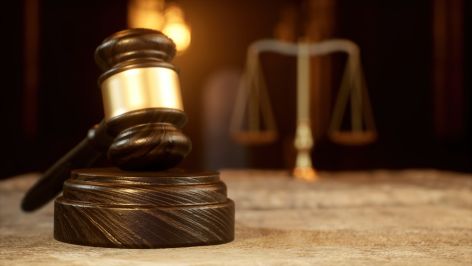Before testifying, witnesses may swear or affirm to tell the truth, the whole truth and nothing but the truth. Can we even discern truth in an age of lies?

iStockphoto.com/cirano83
In much of the English-speaking world, when witnesses are called to testify in legal proceedings, they must first swear or affirm to tell the truth, the whole truth and nothing but the truth.
This oath developed in England during the Middle Ages and is a staple of English common law, through which it spread to countries as diverse as Australia, India, South Africa and the United States. The judicial systems in all these countries require witnesses to swear, or affirm, their intent to tell the truth by using this phrase or one very similar to it.
What does this tell us about human character? What does this tell us about the nature of truth? Is it even possible to know truth in this broken world?
A horrible miscarriage of justice
Long before the oath to tell the truth, the whole truth and nothing but the truth came into use, the Bible already contained the story of a man who died as the result of the lies of evil men (1 Kings 21). King Ahab wanted Naboth’s vineyard, but Naboth refused to sell it to him, saying, “The LORD forbid that I should give the inheritance of my fathers to you!” (verse 3).
Ahab’s wife Jezebel intervened, calling on the elders of the city to find two “scoundrels” (verse 10) to provide false testimony that Naboth had committed blasphemy, a capital crime. The assembled people then stoned Naboth to death. Lies can, and do, cause great suffering.
“None righteous, no, not one”
Requiring witnesses to swear or affirm that they are telling the truth shows us just how little we humans can be trusted. In writing to the church at Rome, the apostle Paul addressed the issue of human character in the context of the divide between Jews and gentiles.
He made it clear that all humans, regardless of race or ethnicity, are sinners. He wrote that “there is none righteous, no, not one” (Romans 3:10). This statement introduced a description of the utter depravity of the human heart.
The beginning verses of this description are more general, but Paul then continued quoting Old Testament passages to list specific sins. The first sin he listed is lying. “Their throat is an open tomb; with their tongues they have practiced deceit; the poison of asps is under their lips” (verse 13).
The point is, we are all liars! This may be difficult to accept, but at some level, we all deceive.
It’s not surprising, then, that we find this aspect of human character at the heart of God’s great law, the 10 Commandments: “You shall not bear false witness against your neighbor” (Exodus 20:16; Deuteronomy 5:20). The words of this commandment specifically prohibit false testimony, but the spirit of the law bans deception in any form.
English common law, like God’s law, recognized the all-too-human inclination toward deceit. Having witnesses swear or affirm “to tell the truth, the whole truth, and nothing but the truth” is a way to impress on them the gravity of their words. Hopefully, then, making such a sober declaration prompts them to think before they speak.
The truth
The first part is simply “the truth.” Witnesses are reminded that they cannot tell falsehoods.
On the surface, this may seem easy, but humans have long demonstrated an inability, and at times an unwillingness, to recognize truth. We often believe what we want to believe.
In fact, we tend to deceive ourselves if the truth is too uncomfortable. This self-deception may be the result of what psychologists call “cognitive dissonance.” According to the Psychology Today website, this discomfort comes from “new information that challenges a deeply held belief.”
If you have built much of your life on a particular belief, you don’t want to discover that you’ve been living a life based on falsehoods. It’s easier to ignore any new information that results in cognitive dissonance.
This human trait plagues science and all academic pursuits. The very people who are supposedly committed to the pursuit of knowledge, and therefore truth, have sometimes been reluctant to embrace new ideas and evidence.
Our sense of self, then, changes the way we perceive the world around us. We filter all new information through an established set of beliefs. Entrenched but unfounded opinions and confirmation bias can make it almost impossible to recognize truth.
The whole truth
The second segment in the statement used for swearing in witnesses points out another means of deception—leaving out important details. We can lie by telling only partial truths. Satan incorporated that approach into his temptation of Jesus.
iStockphoto.com/sefa_ozel
Satan urged Jesus to throw Himself down from “the pinnacle of the temple” (Matthew 4:5), quoting a scriptural promise of protection: “He shall give His angels charge over you . . . in their hands they shall bear you up, lest you dash your foot against a stone” (Matthew 4:6, drawn from Psalm 91:11-12).
Notice that Satan told the truth in this instance. However, he did not tell the whole truth. Although Scripture does, indeed, promise protection for those who trust in God, each individual passage must be understood in light of the entire teaching of the Bible.
Jesus responded to Satan’s attempted deception by quoting another biblical verse. “It is written again,” He declared, “‘You shall not tempt the LORD your God’” (Matthew 4:7, drawn from Deuteronomy 6:16).
When a witness leaves out pertinent information, that deficiency can distort the understanding of the judge and the jury. When we leave out pertinent information, we are guilty of deception, even though we may not be saying any words that are false.
And nothing but the truth
The final segment in the swearing-in statement sheds light on another way that humans try to color the truth. We embellish the truth, adding details. At times we may do so consciously, but at other times, subconsciously.
Adam and Eve each added details in their statements to God after He confronted them with their sin. When God asked Adam, and then Eve, whether they had eaten fruit from “the tree of the knowledge of good and evil,” they each answered truthfully.
However, the first man added an unnecessary detail to justify himself. “The woman whom You gave to be with me,” he said, “she gave me of the tree, and I ate” (Genesis 3:12). Notice that before Adam confessed, he tried to transfer blame to Eve, even suggesting that God was at fault because He had given Eve to Adam.
Much of what we experience today is the result of rejecting God and His way of life. Like Adam and Eve, we continue to choose from the wrong tree—the tree of the knowledge of good and evil.
In the same way, Eve added detail to her response. “The serpent deceived me,” she began, “and I ate” (verse 13). In providing more detail, Eve attempted to justify herself by passing blame on to the serpent.
Human beings have been guilty of the same approach all through history. We are too often guilty of this today, justifying our wrong thoughts, words and behavior.
An age of lies
Lies and deception have been the legacy of humanity since our parents, Adam and Eve, chose to “color the truth” after getting caught in their sin. No age, tribe, ethnic group or race has been exempt from this curse.
Our modern age, however, seems to be experiencing a negative renaissance of deceit. Truth seems to have disappeared as we sift through inaccuracies and misinformation, and even disinformation—propaganda and lies designed to mislead. Waves of exaggeration in advertising inundate us, and we struggle to negotiate our way through political spin and media bias.
Much of what we experience today is the result of rejecting God and His way of life. Like Adam and Eve, we continue to choose from the wrong tree—the tree of the knowledge of good and evil. We continue to decide for ourselves what is right and what is wrong.
That choice means society recognizes no absolute truth. Instead, we speak of “my truth” and “your truth.” Our world rejects the notion of any objective standard.
To paraphrase what the apostle Paul wrote in Romans 1:22, “professing to be wise, we have become fools.”
Is there a way to get ourselves out of this mess? Is it even possible to know truth in a broken world?
“What is truth?”
Truth also seemed elusive in the time of Jesus and His disciples. The Jews lived in territory conquered by the powerful Roman Empire. Puppet kings and governors appointed by Rome administered their respective domains with little concern for their subjects.
Resentment fueled a revolutionary fervor, accounting for groups like the Zealots, who sought to overthrow the Romans. Many of the people interpreted messianic prophecies in accordance with their own desire to break free from Roman bondage.
Even among the wealthier class, there was no agreement about truth. Pharisees and Sadducees butted heads over the nature of death and whether there is a resurrection (Acts 23:6-8).
The Romans themselves faced this struggle for truth. With each conquered territory, they were exposed to yet another worldview. Today’s multicultural global society is nothing new. The Romans experienced it before us, as did other empires before them.
It’s no wonder, then, that Pilate asked his famous question about truth when judging Jesus. Christ had explained that the reason He had “come into the world” was to “bear witness to the truth” (John 18:37).
Pilate asked, perhaps cynically, “What is truth?” (verse 38).
Ironically, Pilate’s use of the word (Greek alētheia) is the last time it appears in John’s Gospel. Pilate’s question caps off a series of significant uses of the word truth.
The truth revealed
John begins his Gospel explaining the heavenly origin of Jesus. This description includes the assessment that Jesus is “full of grace and truth” (John 1:14).
Jesus Himself, as John records, told the “Jews who believed Him” that “you shall know the truth, and the truth shall make you free” (John 8:31-32). Later, when gathered with His closest disciples the evening before His crucifixion, Jesus told them, “I am the way, the truth, and the life” (John 14:6).
Jesus is the epitome of truth and the source of truth. That’s why Pilate’s question, whether asked in earnest or with cynicism, is so ironic. Standing before him was the truth, but Pilate was unable to recognize Jesus for who He is.
What about us today? We are continually faced with lies, half-truths and exaggerations. It can all be overwhelming. Are you tired of deception? Do you, like God, “desire truth in the inward parts” (Psalm 51:6)?
If so, you need a way to discern truth. How is that possible in this age of lies?
The answer is God’s Word. That may seem like a simplistic answer, especially if you merely want some sort of lie detector in your life. On the other hand, if you want true, foundational knowledge that will help you discern how to live, the Bible is your answer.
To gain the full benefits of the “word of truth,” first commit to reading the Bible daily, and you’ll find that it becomes a light to guide you through life (Psalm 119:43, 105). Then, to unlock more of the truths of the Bible, enroll in our online Bible Study Course.




